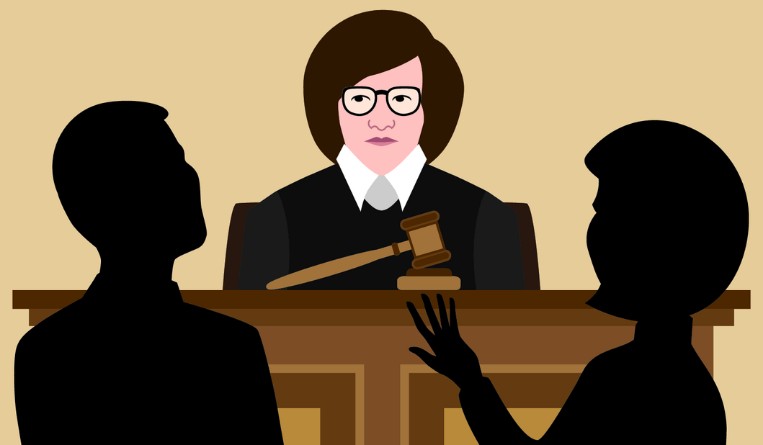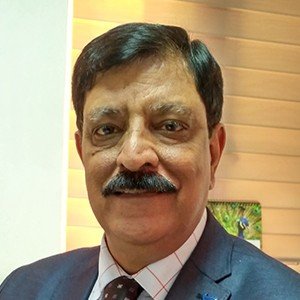Right to cross-examination of an expert witness: Absolute or discretionary?
31 August 2021
 Cross-examination is an excellent tool in the hands of expert lawyers, particularly in contested patent cases to find the veracity of the expert or demolish the correctness of the technical position taken by the experts. D.P.S. Parmar examines the use of crossexamination in Indian courts.
Cross-examination is an excellent tool in the hands of expert lawyers, particularly in contested patent cases to find the veracity of the expert or demolish the correctness of the technical position taken by the experts. D.P.S. Parmar examines the use of crossexamination in Indian courts.
In contested patent disputes, the rule of fair hearing mandates that all the parties must have an equal opportunity of being heard. If an expert plays a crucial role in understanding the technical aspects of the claims in dispute, the cross-examination of the expert witness is critical in establishing not only the veracity of the witness but also the truthfulness of the facts. A fair hearing under the patent law includes the right to know the evidence, whether oral or documentary, with providing a fair opportunity to present the defence and the right to cross-examine expert witnesses. In such disputes, the discretion of the controller to issue commissions for the examination of witnesses is governed by the Code of Civil Procedure 1908 (CPC) as stated under Section 77 and Section 79. The discretion of the controller of Patents under Section 79 provides that if the controller is satisfied that there exists a sufficient cause to warrant cross-examination, they may allow any party to be cross-examined on the content of their affidavit. Section 79 reads:
“79. Evidence how to be given and powers of Controller in respect thereof.— Subject to any rules made in this behalf, in any proceeding under this Act before the Controller, evidence shall be given by affidavit in the absence of directions by the Controller to the contrary, but in any case in which the Controller thinks it right so to do, he may take oral evidence in lieu of, or in addition to, evidence by an affidavit, or may allow any party to be cross-examined on the contents of his affidavit.”
Controller empowered to act as a civil court
Chapter XV of the Patents Act, 1970 refers to the powers of a controller in general. Section 77 specifies that certain powers of the civil court are also vested with the controller. Section 77 provides clear mandates to the controller to act as the civil court in respect of matters specified from Section 77(a) to (h) where a controller shall have the powers of a civil court while trying a suit under the CPC. These matters inter alia include:
- summoning and enforcing the attendance of any person and examining him on oath
- issuing commissions for the examination of witnesses or documents
Since this power of the controller is governed by the CPC, all the orders and rules framed under the CPC would also apply to the controller while exercising powers of a civil court in issuing commissions of witnesses. The basic object of issuing a commission by the court is to ensure complete justice to the parties to the suit. The power of issuing commission for examination of a witness or cross-examination rests totally with the discretion of the controller as stated under Section 79. By issuing a commission in a particular case, the controller performs an in-depth investigation on the technical subject matter in dispute, where it deems necessary. This power cannot come within the scope of inherent powers of the controller in the matters of procedure as such powers have their source in the CPC, possessing all the essential powers to regulate its practice and procedure in such matters. The following cases highlight the importance and allowability of cross-examination under the patent law.
Cross-examination essential
In Sri Rajesh Kumar Banka v. The Union of India & Others, decided by Calcutta High Court, the opinion of Justice IP Mukerji set the tone why cross-examination is essential to evince the truth when he rightly observed that “Even if the petitioner had not asked for cross-examination of the witness, the board, comprising experienced adjudicators, ought to have extended the liberty of cross-examination to the petitioner to evince the truth.”
UK Position: Wobben v. Vestas-Celtic Wind Technology Ltd
In Wobben v. Vestas-Celtic Wind Technology Ltd., England and Wales High Court (Patent Court) [2007]EWHC2636(Pat) considered the opinion and cross-examination of the experts Dr. Taylor for Alloys Wobben and Prof. Green from Vestas’ side to come to an informed conclusion on the common general knowledge at the time of priority date that “at the priority date, de-rating was common general knowledge as it is a part of the most basic knowledge of any electrical engineer. It would have been trivial to implement the same on wind turbines at the date of priority.” The issue before the patent court was whether it was obvious to incorporate this feature in a turbine in 1997. To come to an informed conclusion, cross-examination of the experts was allowed. It was also submitted by experts that Claim 1 does not require the wind turbine to de-rate to zero. They confirmed that it is enough that the amount of power that is emitted is reduced, even before reaching a defined minimum network voltage value Vmin. Dr. Taylor and Prof. Green each considered that to be obvious. The UK patent court found, on cross-examination, that experts from both sides, agreed that this feature is obvious and there was no suggestion that it would pose as a technical difficulty. The patent court ruled that Claims 1, 6 and 7 are therefore invalid in light of the common general knowledge. This case highlights the importance of cross-examination in complicated technical matters.
Indian Position: Enercon India v. Aloys Wobben (IN 197959)
In revocation of Patent 197959 [which is equivalent to the UK/EPO patent revoked by the UK Court] in Enercon India v. Aloys Wobben by Intellectual Property Appellate Board (IPAB) Order 239 of 20109, it was argued by the applicant that, “Further, the attention of the Board was invited to Page 65 (of the revocation application), Paragraph 152, (of the UK judgment), where it was shown that Dr. Taylor, the expert of the respondent on cross-examination, agreed that it was conceptually obvious that the wind energy systems would have to stay connected to the network (in case of faults) when such wind energy systems have attained certain power capacity because it would be a requirement for them to comply.”
Though the expert evidence from both the parties was not allowed by the IPAB and no cross-examination was done in India but the details of the cross-examination and opinion of the UK court in invalidation of the UK/EPO patent perhaps influenced the IPAB decision to revoke the Indian patent as well.
Cross-examination denied by the Controller
In the case of Onyx Therapeutics, Inc. v. Union of India & others (February 22, 2019), the deputy controller denied the opportunity of cross-examination even when the request was made by the parties. Aggrieved by this decision, a writ was filed in Delhi High Court against the denial of opportunity to cross-examine the experts by the appellant.
While discussing the argument of the respondent in this case that it is a settled law that the right to cross-examine in any proceedings before any IP tribunal, including the controller, is not an inherent or statutory right, the court analyzed the provisions of patent and trademarks law in view of the decisions in the cases of Financial Times Ltd. and Swastick Pipes Ltd. in detail. The scheme of the Patents Act, 1970 for cross-examination appears to be in pari materia – together with other statutes covering the same general subject matter – with the provisions of the Trademarks Act, 1999. But in the landmark decisions on cross-examination, in the Onyx case, a single judge bench observed that:
“31. In the case of Financial Times Ltd., it has been recorded that since the affidavits are required to contain only the facts and not opinions expressed, the request for cross-examination is to be sparingly granted. Even in such a case, there is no absolute bar for cross-examinations. Likewise, in the case of Swastick Pipes Ltd. (supra), it has been held that under the Trade Marks Act, there is no exclusive and vested right to cross-examine a deponent.
Further, the court compared the provisions of trademarks law with patent law and distinguished the Swastick Pipes Ltd. case and observed that:
“32. In contrast, under the Act, Section 79 categorically grants the discretion to respondent No. 2 to permit the parties to cross-examine the witnesses. The present case is highly technical, wherein the expert witness of respondent No. 3 has provided his/ her view/ opinions/ analysis of different prior art documents/ literature relied upon him/ her to opine that the invention claimed under the petitioner's patent is not novel and is obvious in light of the prior art. Such technical analysis conducted by the expert witness(es) and his opinion thereto, cannot constitute facts per se. Therefore, in such cases wherein the request of cross-examination is prayed for, the same ought to be granted.
33. In the present case, the petitioner has challenged the validity of the analysis of the said witnesses at the very outset, and thereafter at every opportunity provided to it under the law. Therefore, in a proceeding wherein the facts and circumstances of the case, the credibility of the witnesses is in question or doubt, or its statement is in dispute, the denial of an opportunity for cross-examination shall amount to a violation of principles of natural justice and vitiate the entire proceedings.”
The court was also critical about the suo moto turn around by the controller from his own decision where he “had exercised its discretion and held that cross-examination of witnesses of respondent No. 3 was required” and the court further observed that, “Once the respondent No. 2 had conclusively held that cross-examination was required, the respondent No. 2 could not have, in the absence of any new documents/ developments/ evidence suggesting so, formed an opposite prima facie view that it is not required.”
Commenting on the suo moto review by the controller to deny cross-examination, the court held that reviewing its decision suo moto, is without jurisdiction and a manifest error of law. The court ruled that, “It is a settled position in law that if the law provides for a particular manner in which a particular thing is to be done, it should be done in that way only and none other. Admittedly, in the present case, no application was filed by respondent No. 3 for review of said orders, and thus, the action of respondent No. 2 in reviewing its decision suo moto, is without jurisdiction and a manifest error of law, as held in the case of Dipak Babaria and Another v. State of Gujarat and Others: (2014) 3 SCC 502.”
The court allowed the writ petition of the appellant and permitted the appellant to cross-examine the expert witnesses of the opponent with a pre-condition that the appellant should first file an affidavit in evidence of its expert witnesses controverting the opinions of the expert witnesses of the opponent.
Division bench ruling in the Onyx case
The appellant preferred a letters patent appeal before the division bench to seek a limited relief to set aside pre-condition imposed by the court. The opponent on the other hand preferred a letters patent appeal before the division bench for quashing of the order of the single judge granting permission to cross-examination with pre-condition. The Division Bench of the Delhi High Court in its order dated September 26, 2019, upheld the decision of the single judge to allow the cross-examination of the experts. The bench further ruled that the objections in the reply statement are the reasons for seeking cross-examination.
The court observed that “on a conjoint reading of Section 77 with Section 79 of the Act and Rules 55A, 56, 57, 58 and 59 of the Rules, there is no need for the patentee to give separate reasons for seeking cross-examination of the witnesses whose affidavits are being relied upon by the opponent.” The Learned Single Judge is, therefore, right in affirming the right of Onyx to cross-examine Dr Surajit Sinha and Dr Prachi Tiwari.
The court ruled that no precondition of “Onyx can cross-examine the experts only after giving evidence before Respondent 2” is required as ordered by the single judge, therefore, the order stands modified to that extent.
It became clear that where the patentee had filed a reply-statement, the patentee was not required to provide any separate reasons for cross-examination of the witnesses whose affidavits were filed by the opponent in support of its post-grant opposition. The controller cannot deny the cross-examination in post-grant opposition in such cases.
Advisory caution
From the cases discussed above, it becomes crystal clear that cross-examination is an excellent tool in the hands of expert lawyers, particularly in contested patent cases to find the veracity of the expert or demolish the correctness of the technical position taken by the experts. These cases, thus, establish the right of one party to cross-examine the experts whose affidavits are filed by an opponent in a post-grant opposition as an absolute right.
The court requires the controller to judiciously exercise the discretionary power of allowing cross-examination that is already vested with him under Section 79 and discretion once exercised should not be suo moto reversed as it was done in the Onyx case. The primary object of cross-examination is to check the credibility of the witness. It is the most important principal test which the law has devised over time, and it is being used in contested patent disputes to ascertain the truth. No doubt it is certainly one of the most efficacious tools at hands of the lawyers. The controller should extend the liberty of cross-examination to the petitioner to evince the truth in appropriate cases. Legally speaking, cross-examination is the interrogation of a witness called by one’s opponent. The primary objective of cross-examination is not simply to attack an adversary but to strengthen the case. An expert opinion must be solicited before cross-examination of an expert witness is sought by the parties in patent disputes.








